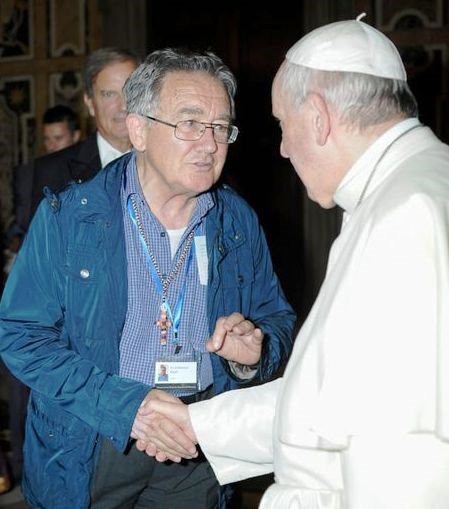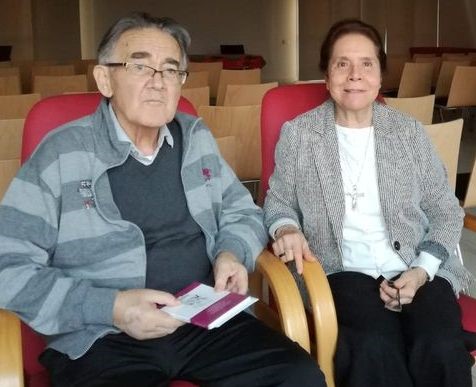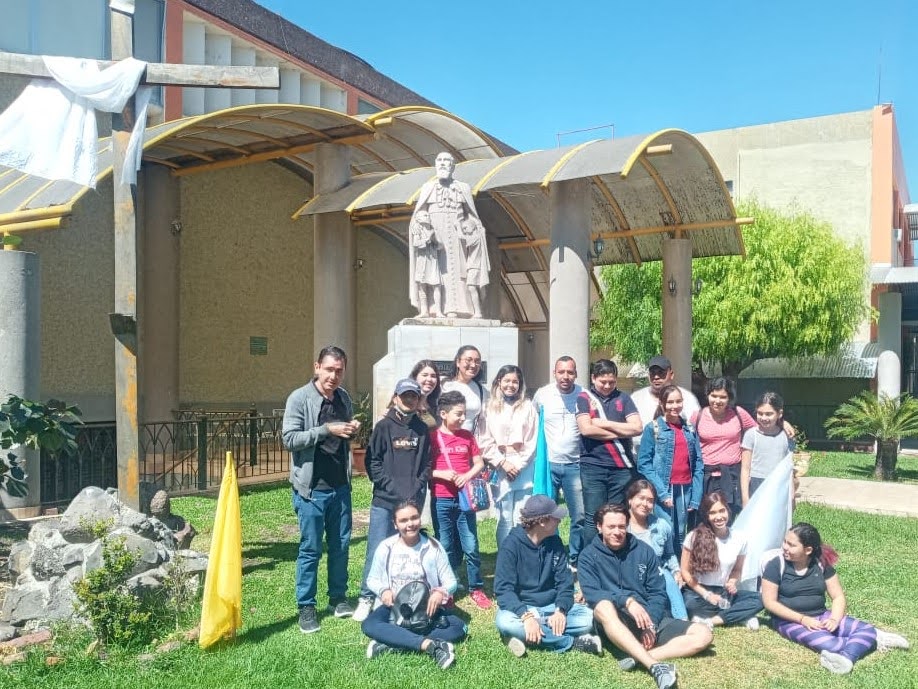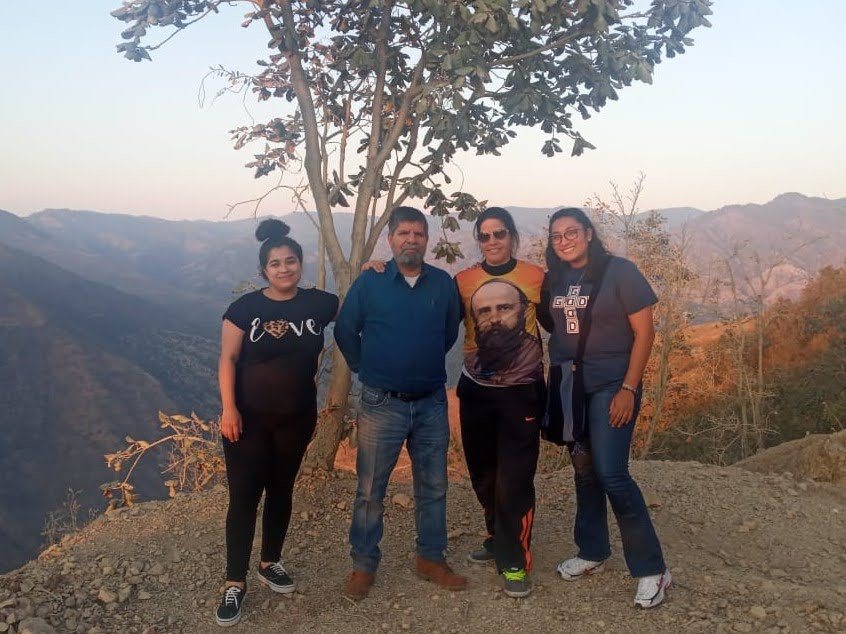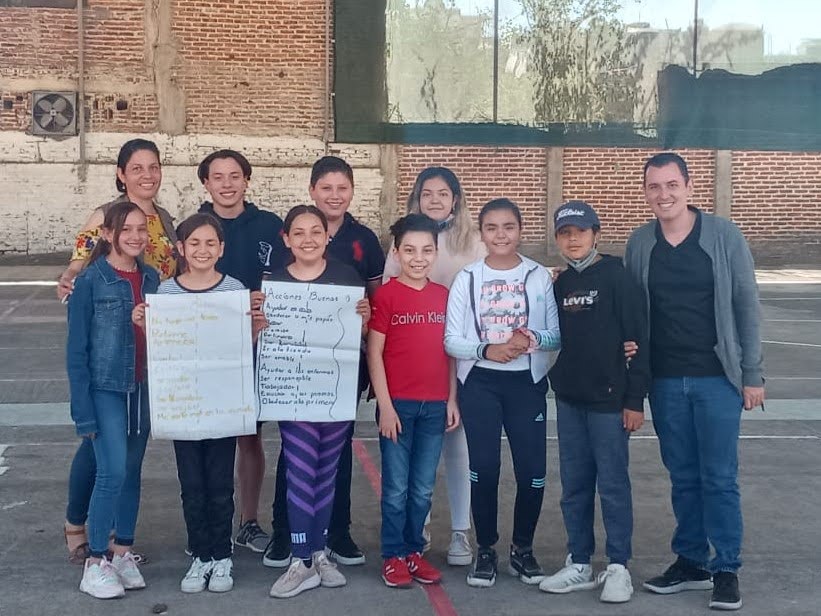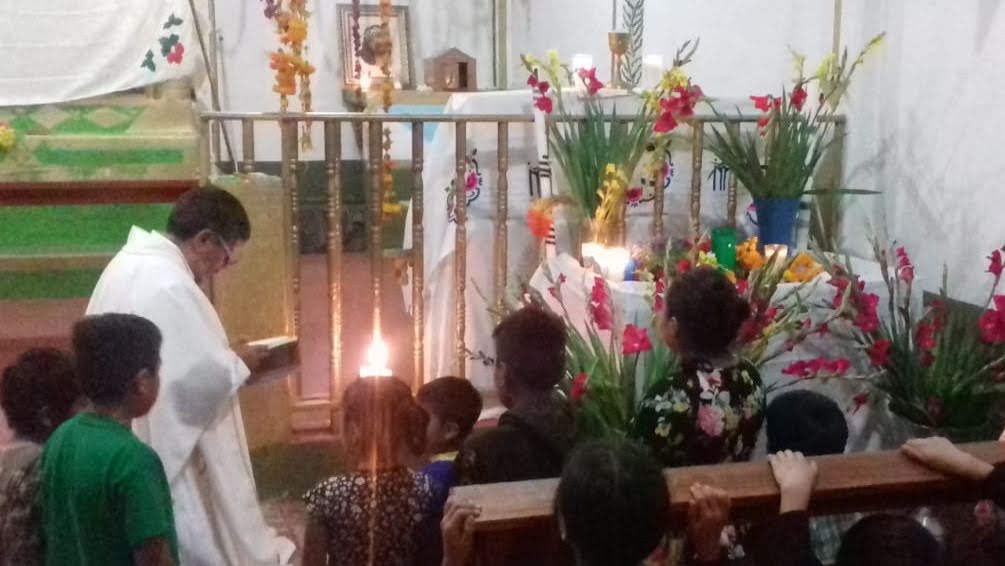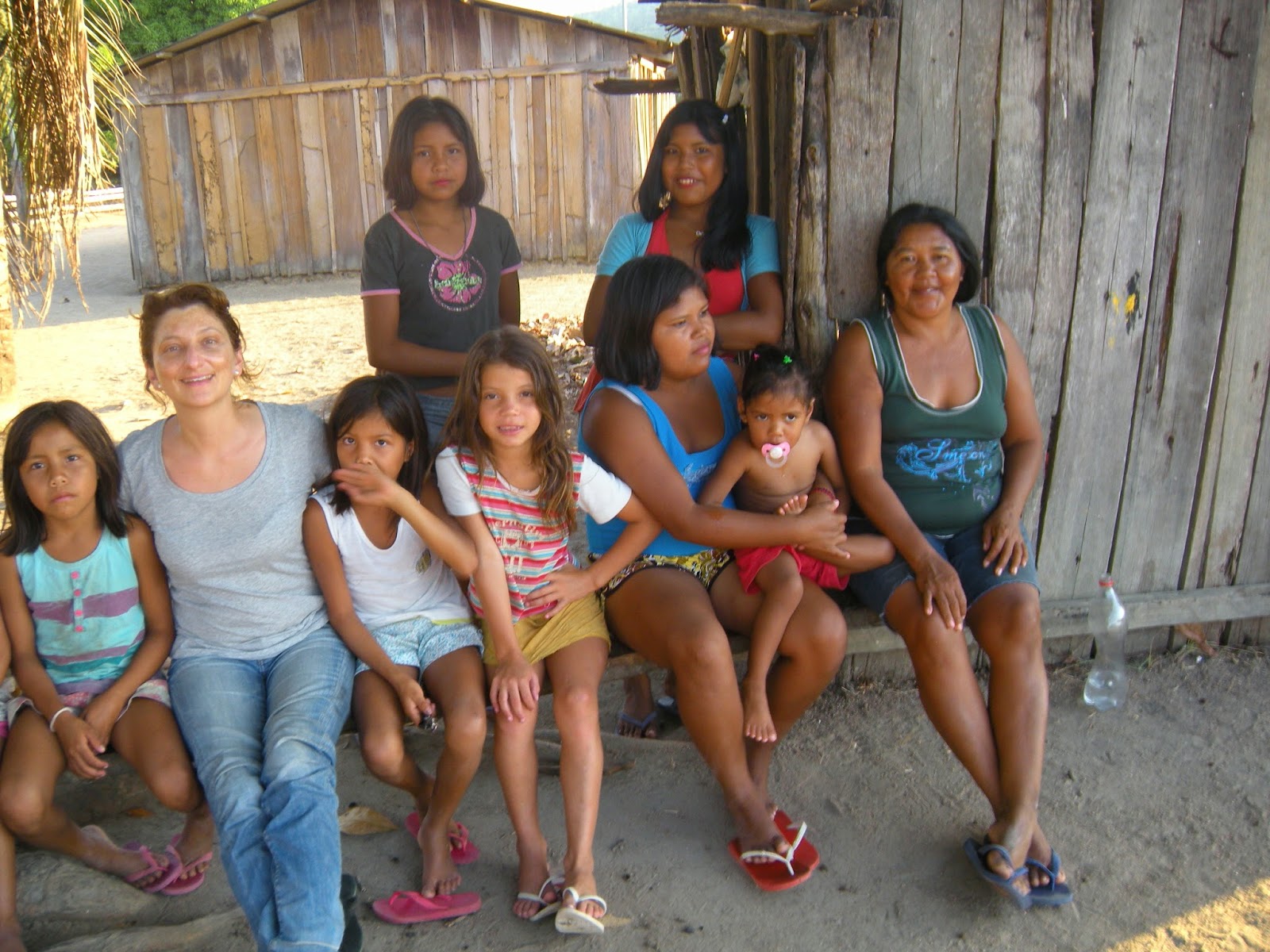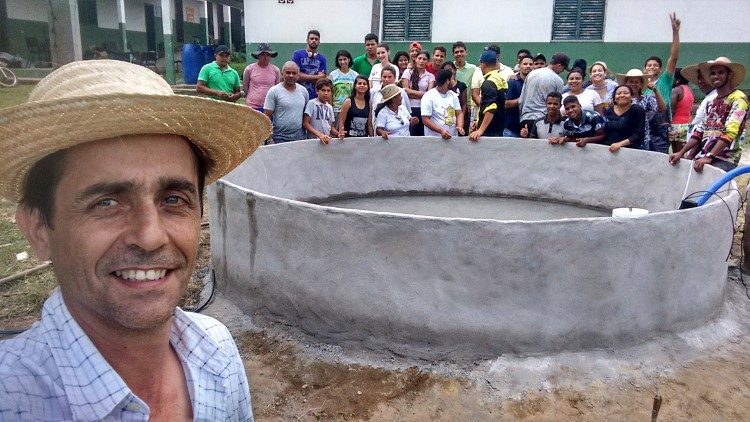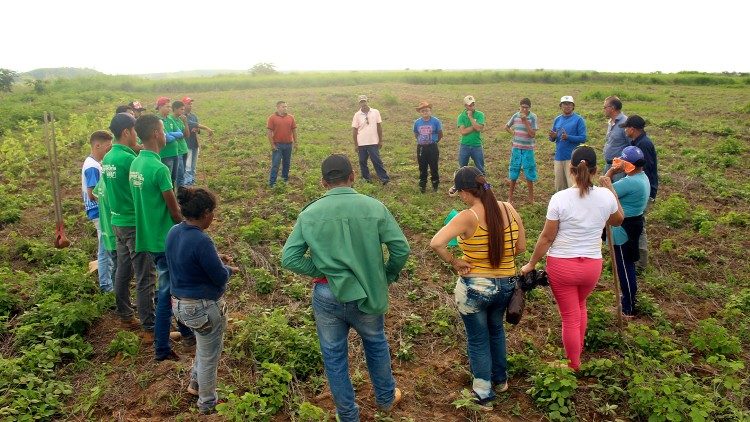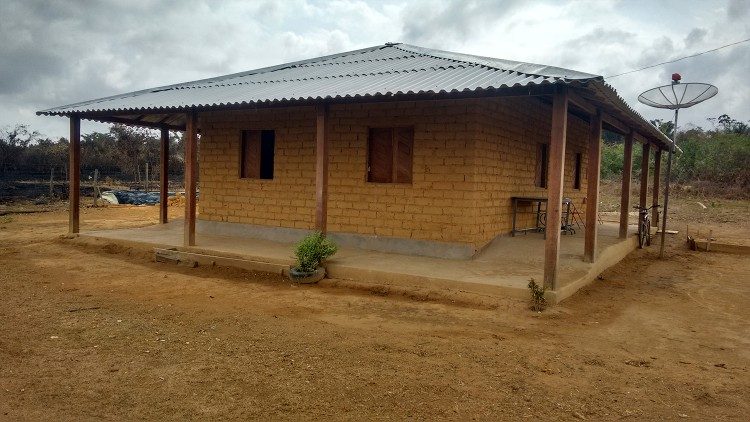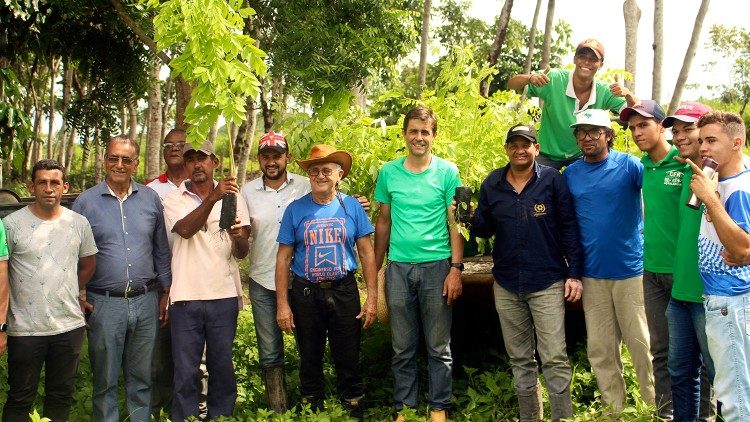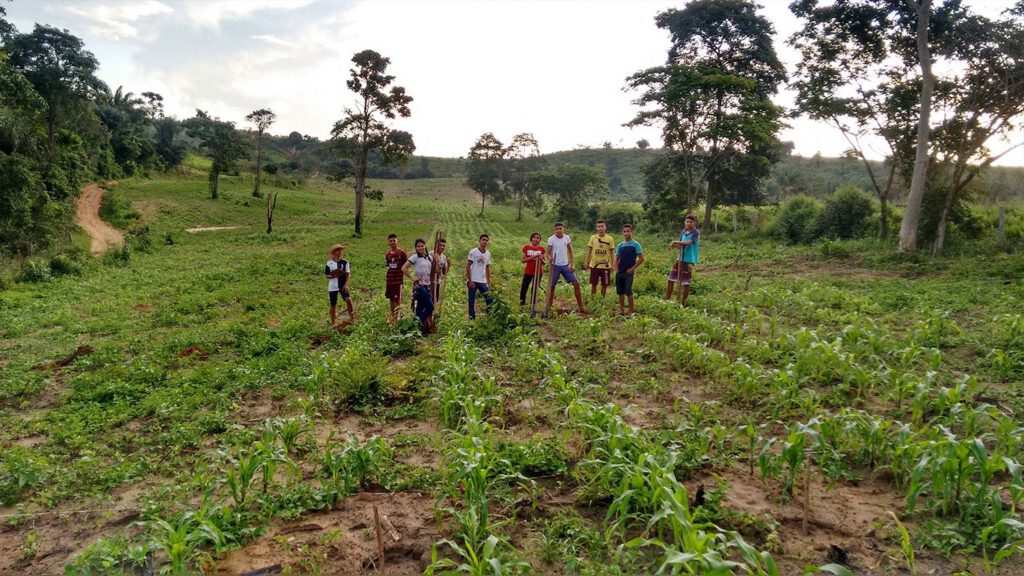A commentary on Matthew 28, 16-20

This Sunday dedicated to the Holy Trinity is, somehow, the highest point in our liturgical year. The disciple missionary, who tries to identify himself with Jesus Christ, receives today, in adoration and contemplation, a proposal to approach the mystery of God, a reality that is close to his most intimate identity (S. Agustin), but at the same time overrides every frontier and every human dimension. The Church offers today a reading of the last verses of Matthew’s gospel, where mention is made of the Father, the Son and the Holy Spirit.
Let us reflect a bit on a few concepts that we can find in these last verses of Matthew:
- To go up the mountain
Jesus meets his disciples on a mountain, in Galilee. It may seem an irrelevant geographical note, but I do not think so. In a sense, all of us are marked by geography. At least, on my side, I must say that some mountains have left a definitive mark in my personal life. I remember, for example, the Sinai majestic pics: there I could understand quite easily how Moses and Elia could feel the extraordinary presence of God (Cfr Ex 19, 20; 1 Kings 19, 8); I remember also the fantastic Machu Pichu in Peru, where I had de impression of being at the centre of our Planet and to enter into communion with the ancient Peruvians… In fact, for many religions and cultures mountains are a place of God’s revelation (theophany). And that can be easily understood: mountains help us to come out of ourselves, to overcome routine and superficiality, looking for the highest level of our personal conscience. And it’s precisely there, in the highest level of our conscience, that appears as a presence that cannot be expressed in words, but it’s clearly perceived as very real and authentic.
Jesus, on his side, used to go quite often to the mountain, alone or with the disciples, reaching, as the son of Mary, the highest level of conscience and communion with the Infinite Love; such an experience has become an extraordinary gift also for us, his disciples and brethren. Following his steps, we need also to climb continuously the mountain of our conscience, with the help of a place which invites us to overcome routine, noise and superficiality.
- Adoration and doubt
Confronted with Jesus, identified “on the mountain” as the Son of God, the disciples experience a double movement of adoration and doubt. On one side, they feel the need to prostrate themselves and acknowledge the Divine presence in the Master and Friend, because only in adoration we can approach the mystery of God; word do not help and even sometimes they may sound almost like a “blasphemy”, in the sense that no words can contain that reality that one can just glimpse from our deepest conscience. That’s why, together with a sense of joy and adoration, the disciples experience also uneasiness and doubt: they are quite aware that they cannot reach to God and that all or words and concepts are limited and , in a sense, not completely truthful. All our concepts about God are inadequate and must be continuously corrected, with the help of the doubt, which lead us not to “sit” over what we have understood and to be ever open to new insights. God is awaiting us always in front of us on the way of history.
- The name of God
Different people, cultures and religions, “grope about” for the mystery of God, giving Him different names according their own cultural experience. Israel, on his side, decided rather not to pronounce God’s name, because really no human being can “name” God. When somebody gives a name to something or somebody, somehow, he takes possession and manipulates the “named” object. But God cannot be possessed or manipulated. Nor even Jesus gives a name to God; what he does is to reveal his relationship with God as his Father and his Spirit. And He commands his disciple to go to the world and baptize “in the name of the Father, and the Son and the Holy Spirit”. When we are baptized, following this mandate, we do not name God, but we are consecrated to become members of that divine “family”. We –and the whole humanity- are called and consecrated to be in communion with this divine mystery of relationships and love.
- God-communion
The most important religions have reached the idea of a unique God and this is an important step in the history of mankind. But Jesus, from the “mountain” of his human conscience, teaches us that God is unique, but not “single”; not “lonely”, but communitarian. In the same way, we, human beings, created on God’s image, are made to live in communion. None of us is complete; we need to be completed by others before reaching the image of God: Father-Son-Spirit. When somebody denies a member of the community is denying God. To adore God means to welcome Him/Her in the sanctuary of the conscience and, at the same time, in the concrete reality of every human being, in its marvellous singularity and diversity.
Fr. Antonio Villarino,
Bogotá





